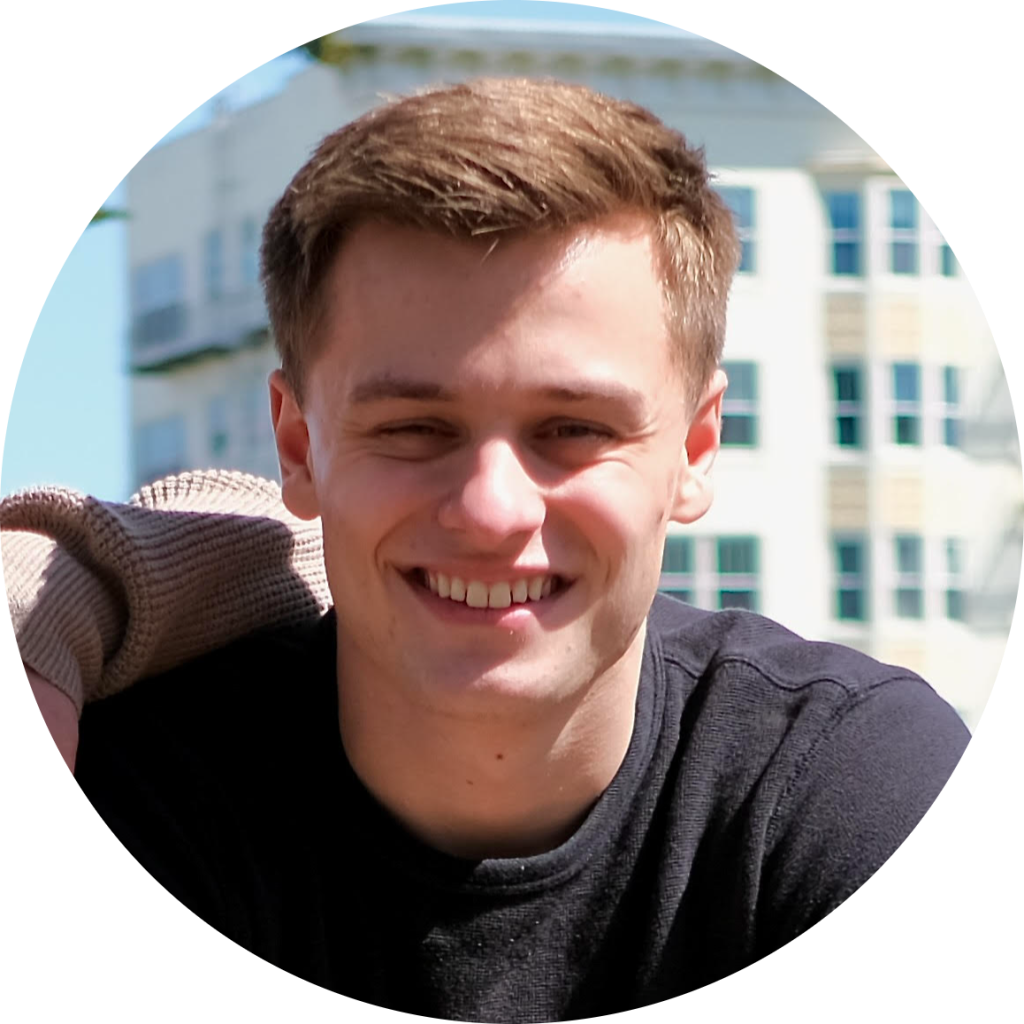How Gen Z are quitting jobs to create next-gen AI startups

Gen Zers are already positioning themselves to be ahead of the next wave of generative AI. And some young professionals, and students, are even quitting their jobs and studies to create AI tech which will help shape the future of work.
Malik Drabla, 24, and Riley Walz, 20, are among them. Drabla recently quit his job at Google to join an AI accelerator program founded and funded by tech entrepreneur Dave Fontenot, and run out of a Victorian mansion, in Alamo Square, San Fransisco. Walz also took a leave of absence during his senior year at Baruch College, to join the program, which has been dubbed the “monastery of hackers.”
Those who apply to this 12-week residency program, called or Hacker Fellowship Zero – or HF0 – get an injection of $250,000 investment in exchange for 2.5% in ownership of their company. The program takes care of everything they need, including food, amenities, and laundry. To get in, interested entrepreneurs can pitch their products in an online application process.
“My friends like to call it the ‘programmer Hype House,’” said Drabla.
During his time there, Drabla has partnered with Jonathan Shobrook, 23, to develop an AI tool that acts like an assistant specifically for developers who are creating their own codes for other products. It’s called Adrenaline and already has tens of thousands of users.
Despite the current tech market conditions, students are still eager to pursue careers in the industry, according to Handshake’s latest report. And the rise of AI, spurred by the emergence of ChatGPT, has made the allure of tech roles even more fascinating. Tech majors on Handshake, a job search engine for college students, are applying to twice as many jobs as their peers, and more than 50% are applying to over 10 full-time roles.
Generative AI is now advancing at such a fast pace, that it’s leaving many Gen Zers and students stressed out about how they will keep themselves relevant in the working world.
Even Google has been criticized for not being ahead of the AI curve. Google began opening access to Bard, its version of experimental, conversational AI, on Mar. 21, inviting users to join a waitlist.
“Google is definitely, in terms of research, one of the best places in the world,” said Drabla, who was a search machine learning engineer at Google for nearly four years. “But, in terms of putting things out there, they are very, very slow. When ChatGPT came out, people were kind of nervously looking around that there was no real response for a long time. It speaks to Google’s culture. People do really good research, but they don’t create products.”
While the speed of development in generative AI is unnerving for many, Gen Zers like Walz see it as an opportunity to get out in front of the developments, while they are relatively nascent.
Walz also left his full-time job at a startup, which he was pursuing at the same time he was in school, after just a couple of months to join HF0. Earlier in college, he lived in a tech house in New York City with around 15 people, so he knew how much these coliving and working spaces can help boost collaboration.
“I feel like I’m getting a preview into the future because it’s really cool technology being built here,” said Walz, who is working with Mehran Jalali, 20, on a Google Sheets and Excel plugin called Numerous. It uses the same AI that ChatGPT uses to automate a lot of spreadsheet busywork, like data cleaning, reformatting, writing formulas for you, and more. It currently has over 4,000 users. “It’s a very exciting time right now,” added Walz.
Walz believes college curriculums haven’t been able to keep pace with the fast-evolving AI developments. When he saw that his final semester barely touched on AI, he decided to pause his degree and get ahead by joining the HF0 program, which ends this April for his cohort.
“My classes were very outdated,” said Walz. “Some professors talked about AI in the fall, but it was a very general look that came from an article. It’s good they were informing us about it, but being out here, I’m diving deep into AI in a way that I would never be able to in college.”
He’s not alone in feeling that way, either.
“Currently computer science education is very much stuck in its ways,” said Drabla. “They have people just reading through textbooks and there isn’t a whole lot of feedback except for in office hours. Even there, the teaching assistant isn’t necessarily the best person to help you because they are preoccupied with a bunch of other people.”
As the generative technology industry continues to grow at a rapid pace, the traditional path of college and an internship might not arm students with enough to break into it. Drabla said he felt that if he didn’t get on the AI game now, he could’ve missed the boat, because of how fast it’s all moving.
“It was very clear to me and everyone in my circle that ChatGPT would be pretty huge and it would’ve been foolish to not capitalize off on it,” said Shobrook.
Shobrook’s urges all other college students who want a career in tech, to start building and testing as much as possible.
“If you’re just going through the normal motions of a college student, like trying to get good grades, doing well on your exams, applying to internships, that is the old paradigm and the old path to success,” said Shobrook. “If you’re not spending as much of your time as possible building projects and putting stuff out there, there’s a chance that you just get left behind. A lot of college students are feeling this.”
He said most of the posts he sees on tech-related subreddits are “really anxious college students” saying “why should I even bother studying computer science when GPT-4 can pump out code better than I can?”
“If you want to make a contribution in this field, you’re going to have to think differently and not follow the prescribed path of doing things,” said Shobrook.
Walz admits it’s not easy. “Sometimes I get huge imposter syndrome,” said Walz. “Talking to investors, I was really stressed. I know all this information, but I second guess if I can present it in a way that makes me seem confident.”
However, he reminds himself that “age doesn’t really matter much in Silicon Valley.” After all, Mark Zuckerberg was only 19 years old when he started Facebook. And Sergey Brin and Larry Page were in their mid-20s when they founded Google.
“You would think that experience would matter, but there have been a lot of big companies started by teenagers,” said Walz.

